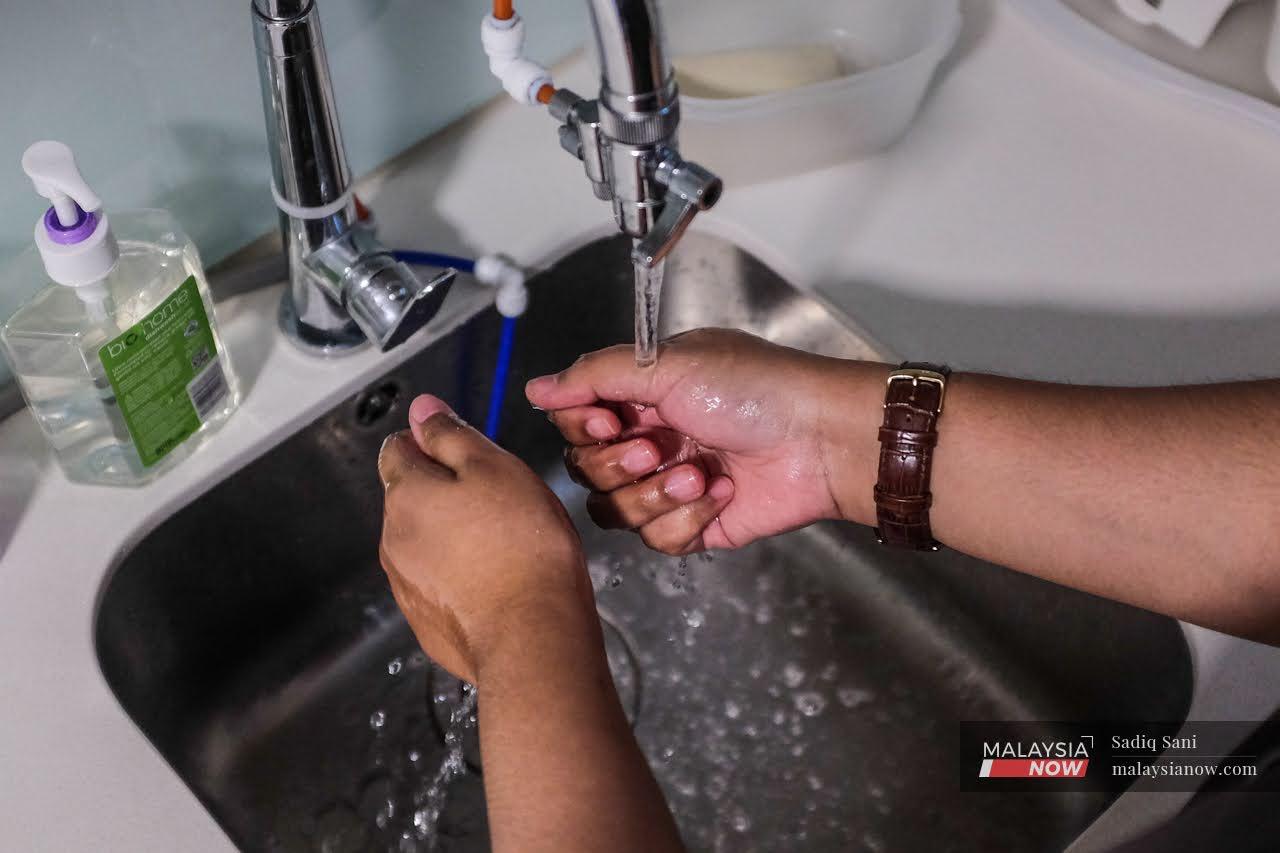Travelling 12km for water every two days
Water poverty, a lack of access to clean and treated water, is a problem especially in rural areas and the interior.
Just In
Every two days, Suhaila and her husband, Zaki, load their car with empty six-litre bottles and travel from their home in Kampung Chabang Tiga Pendek, Pasir Mas in Kelantan to her aunt’s house about 12km away.
Once they arrive, they unload the bottles and fill them at the well in the backyard. After that, they haul them back to their car and begin the long trip home again.
This has been their routine ever since they got married seven years ago.
While there is a water supply of sorts in their neighbourhood, it is often disrupted and the water that comes from their taps is usually dirty and unfit for either drinking or cleaning.
The few bottles that they haul back from Suhaila’s aunt’s are rationed among themselves and their two children for drinking, bathing, washing and cooking.
Once the bottles are empty, it is time to make the trip again.
Suhaila and Zaki are among the many families in Kelantan struggling with a dearth of clean water supply.
As of 2020, the National Water Services Commission estimated that some 96.9% of households in the peninsula and Labuan had access to clean and treated water.
But in Kelantan, the numbers are less positive with only 71.6% of the state’s 1.7 million residents able to access clean water.
This makes Kelantan the state with the lowest percentage of access to quality water supply.
Economist Madeline Berma said Malaysia had long measured poverty according to income, without taking into account access to clean water.
Madeline, of the Academy of Sciences Malaysia, added that a lack of access to clean water also constitutes a type of poverty.
“We are only concerned about money. We don’t know whether people even have water to drink or not,” she said.
According to the World Bank, individuals and households are said to be experiencing water poverty when they are not supplied with clean and treated water in the proper amount and lack access to a proper water sewerage system.
Speaking to MalaysiaNow, Madeline broke down the country’s water situation into four categories of areas for the assessment of water poverty.
First, there are the major cities like Kuala Lumpur, Kuching, Johor Bahru and Kota Kinabalu where residents have no problems accessing clean and treated water.
“People always make comparisons, saying that the water system in Kuala Lumpur is not the same as Sarawak,” she said.
“That’s actually not correct. If you want to compare, you have to compare cities in the same category. The water situation in Kuala Lumpur and Kuching is the same as both are cities.”
Next come urban areas such as Petaling Jaya and Bangi in Selangor, and George Town in Penang, where people experience few if any serious problems accessing clean water.
In such areas, Madeline said, the problem is usually insufficient water supply.
After that come rural areas, and areas in the interior which she described as “very problematic”.
In such locations, she said, residents face the double problem of no clean water and no treated water.
“For instance, in urban areas in Selangor, the water is treated. There’s just not enough to meet residential as well as industrial needs,” she said.
“But in the interior, there is no clean water thanks to pollution, logging and deforestation.”
Madeline gave the example of Sungai Rajang in Sarawak, which she said had been badly affected by logging activities.
“I can’t tell if it’s river water or teh tarik,” she added, referring to the milk tea drink characterised by its rich brown colour.
Many local media reports on the situation had also urged the Sarawak government to investigate the alleged dumping of driftwood waste said to have blocked the flow of the river.
The water treatment plant in the area has also been unable to operate at normal capacity due to the high level of pollution.
Madeline said water poverty had become a more urgent problem due to the Covid-19 pandemic, with more emphasis on good hygiene and the frequent washing of hands.
“For all the talk about poverty, this issue is rarely brought up,” she said.
“We don’t want it to become a problem like child poverty.”
Subscribe to our newsletter
To be updated with all the latest news and analyses daily.
